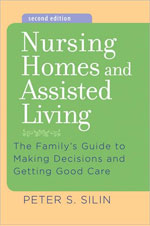Eldercare, Aging, and Nutrition
Okay, so the title is a lie. This has nothing to do with eldercare. But someone sent these to me, I don't know who wrote them, I thought they were funny, and my sanity was wilting about now.............
HEALTH QUESTION & ANSWER SESSION
Q: I've heard that cardiovascular exercise can prolong life; is this true?
A: Your heart is only good for so many beats, and that's it... don't waste them on exercise. Everything wears out eventually. Speeding up your heart will not make you live longer; that's like saying you can extend the life of your car by driving it faster. Want to live longer? Take a nap.
Q: Should I cut down on meat and eat more fruits and vegetables?
A: You must grasp logistical efficiencies. What does a cow eat? Hay and corn. And what are these? Vegetables. So a steak is nothing more than an efficient mechanism of delivering vegetables to your system. Need grain? Eat chicken. Beef is also a good source of field grass (green leafy vegetable). And a pork chop can give you 100% of your recommended daily allowance of vegetable products.
Q: Should I reduce my alcohol intake?
A: No, not at all. Wine is made from fruit. Brandy is distilled wine, that means they take the water out of the fruity bit so you get even more of the goodness that way. Beer is also made out of grain. Bottoms up!
Q: How can I calculate my body/fat ratio?
A: Well, if you have a body and you have fat, your ratio is one to one. If you have two bodies, your ratio is two to one, etc.
Q: What are some of the advantages of participating in a regular exercise program?
A: Can't think of a single one, sorry. My philosophy is: No Pain...Good!
Q: Aren't fried foods bad for you?
A: YOU'RE NOT LISTENING!!!. Foods are fried these days in vegetable oil. In fact, they're permeated in it. How could getting more vegetables be bad for you?
Q: Will sit-ups help prevent me from getting a little soft around the middle?
A: Definitely not! When you exercise a muscle, it gets bigger. You should only be doing sit-ups if you want a bigger stomach.
Q: Is chocolate bad for me?
A: Are you crazy? HELLO . Cocoa beans! Another vegetable!!! It's the best feel-good food around.
Q: Is swimming good for your figure?
A: If swimming is good for your figure, explain whales to me.
Q: Is getting in-shape important for my lifestyle?
A: Hey! 'Round' is a shape!Well, I hope this has cleared up any misconceptions you may have had about food and diets. And remember: "Life should NOT be a journey to the grave with the intention of arriving safely in an attractive and well preserved body, but rather to skid in sideways - Chardonnay in one hand - chocolate in the other - body thoroughly used up, totally worn out, and screaming "WOO HOO, What a Ride!"



